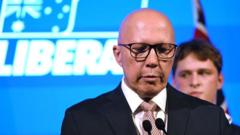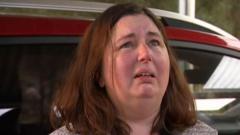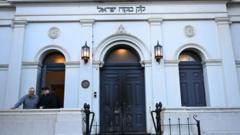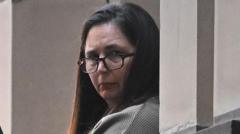Australia's opposition party, the Liberal Party, is grappling with its worst election results in history, prompting calls for a serious review of leadership and direction as Peter Dutton loses his seat and position.
Australia’s Liberal Party Faces Unprecedented Setback After Election Loss

Australia’s Liberal Party Faces Unprecedented Setback After Election Loss
A massive defeat forces the Liberal Party to rethink strategies and leadership following a landslide victory for Labor.
Australia's political landscape has experienced a seismic shift after the Liberal Party's crushing defeat in the federal election held on Saturday. With this result emerging as one of the party's worst in history, the ramifications for the opposition are profound, demanding an urgent reevaluation of their strategies and leadership.
Peter Dutton, the leader of the Liberal Party, suffered the unprecedented blow of losing his own seat in Dickson, a stronghold he had represented for 24 years. This marked him as the first federal opposition leader to be ousted from both his position and parliament concurrently, highlighting the depth of the party's crisis. Labor candidate Ali France claimed victory in Dutton's former territory, contributing to Labor's sweeping triumph across the nation.
In his first public statement following the election, Prime Minister Anthony Albanese expressed gratitude for the public's call for unity over division. His comments reflected a significant shift in voter sentiments, as the Liberal Party faced an overwhelming loss in Australia's urban centers, with major cities like Sydney and Melbourne seeing a dramatic extinction of Liberal representation.
Liberal MP Keith Wolahan articulated the necessity for a thorough evaluation of the systemic failures that led to their shocking outcome. He emphasized the need for party members to heed the voters' message, a sentiment echoed by others in the political field. A former adviser to the last Liberal Prime Minister contributed to the critique, labeling Dutton's leadership as an experiment that ultimately failed, while articulating that the result represents a catastrophic moment for the Coalition.
Amidst this turmoil, speculation is burgeoning regarding who will replace Dutton as the Liberal Party leader. Among the potential successors are shadow treasurer Angus Taylor and deputy leader Sussan Ley, alongside shadow ministers Dan Tehan and Andrew Hastie, creating a sense of urgency for the party to establish a new direction.
As the Liberal Party navigates this unprecedented period, the road ahead appears fraught with challenges that will shape the political tenure leading up to the next election in 2025. The scramble for renewed leadership and strategy mirrors the reflections of a party at a crossroad, seeking to reclaim its standing among the electorate.

















